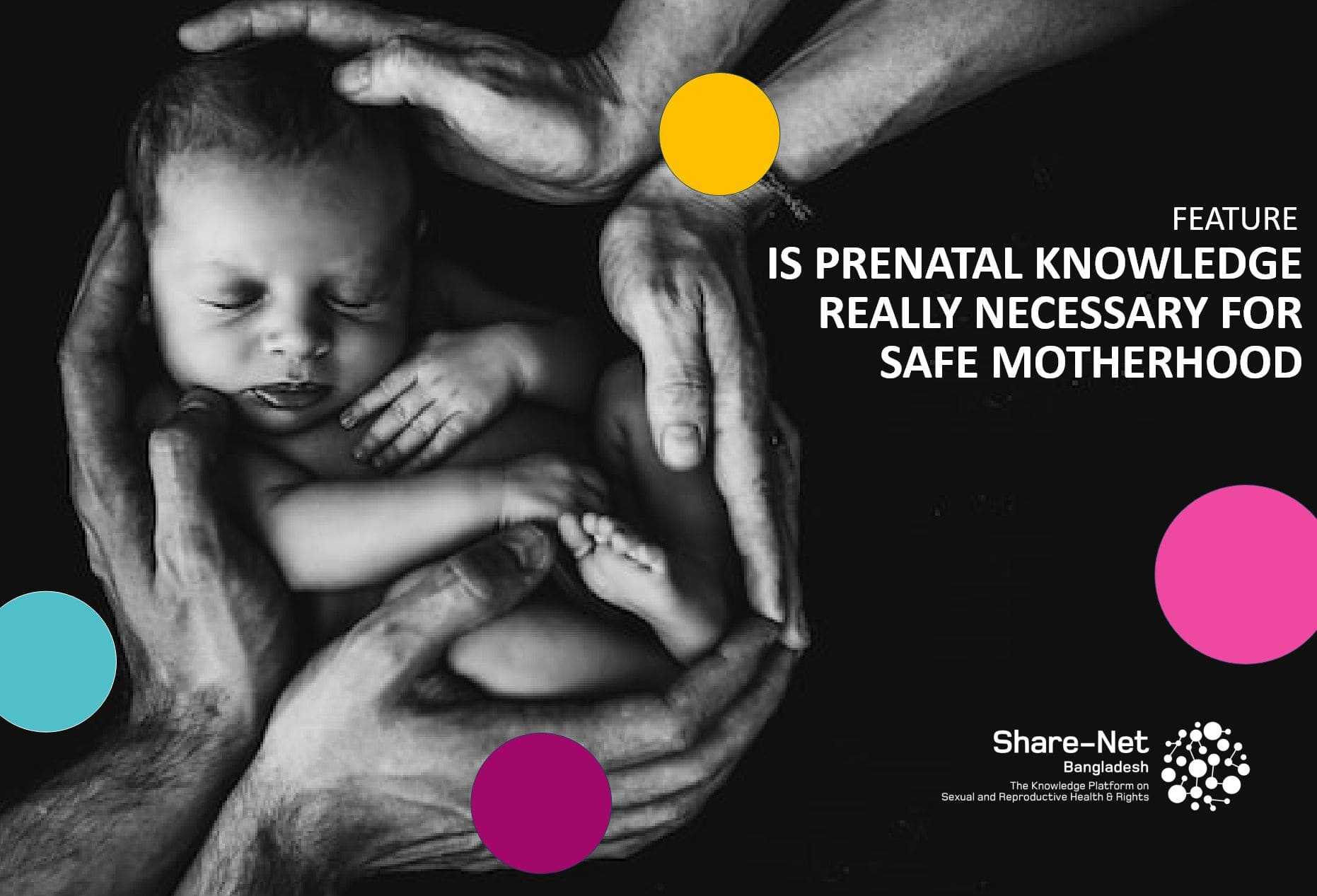Is Prenatal Knowledge Really Necessary for Safe Motherhood?
Prenatal courses are a system used in developed nations to inform and equip moms with solutions to tackle postpartum difficulties. These courses do not have a medical focus. Instead, they are led by certified childbirth educators who instruct and mentor new mothers on the fundamentals of a healthy pregnancy, labour, child care, and other topics. These prenatal programmes combine forms of knowledge and scientific proof, whereas peer assistance in Bangladesh is more experience-driven.
Maternal mortality is a serious public health issue in the majority of developing nations worldwide. This remains one of the most significant obstacles to human progress as a result. Globally, according to estimates from the World Health Organisation (WHO), 295,000 women of reproductive age passed away in 2017. Nearly 99% of maternal fatalities were documented in underdeveloped nations, according to a comprehensive assessment. The Sustainable Development Goals (SDGs) state that by 2030, there should be 70 maternal deaths worldwide for every 100,000 live births.
We take pregnancy and delivery for granted. When a woman conceives, we expect she will quickly pick up all the necessary information from her peers. While the combined family has been the norm in the past, this could have been the case. But in today’s micro-family structure, asking for assistance from one’s peers might be challenging. Health professionals can only provide limited assistance outside of peer support due to low doctor-to-patient ratio, sociocultural context, and other factors. A mother’s sole remaining choice is to discover what is required as the pregnancy develops.
Utilising antenatal care (ANC) and delivery services right after delivery can promote mothers’ health and ensure newborns have the greatest possible start in life. When pregnant women use health care provided by qualified professionals with the required resources in accordance with advised clinical guidelines, the majority of pregnancy problems that result in severe morbidity or death could be avoided.
Utilising antenatal care (ANC) services enables the identification of difficulties’ early warning signals, the referral of women to emergency care, and the management of severe issues throughout pregnancy and childbirth. Although several low and middle-income nations have made success in increasing the use of maternal health care, further development and promotion is required to enhance maternal and newborn health.
Prenatal classes cover a variety of topics, including preparing for pregnancy, adjusting nutrition and exercise while pregnant, knowing the signs of labour, knowing when to seek medical attention and how to handle labour, knowing how labour progresses, knowing about childbirth positions, relaxation techniques, postnatal care, caring for a newborn, etc. Multiple seminars covering these subjects would be ideal, and a class of expectant and new moms would be invited to attend.
Prenatal lessons are not just for pregnant women, despite what some people may believe. Instead, anyone contemplating a pregnancy, including a spouse, friend, mom, or sister of a pregnant lady, is welcome to enrol in the sessions to learn more. Therefore, preparation for a good birth requires knowledge of this 40-week journey. Knowing everything necessary about the prenatal journey is the initial step to make the post-delivery experience less hectic. A happy delivery experience is something a woman treasures for a very long time.
Maternal health care programmes should pay special attention to young, pregnant women of low socioeconomic status or with less educated husbands to boost the use of health services and promote excellent health. In order to understand why pregnant women, regardless of status, migrated from public to private facilities, some proper research should be done to educate decision-makers, planners, and programme designers so they can intervene where it is most necessary.
Additionally, some studies in Bangladesh show that women without access to the media and those whose spouses had lower levels of education had a low likelihood of using ANC services. These obstacles can be lessened by requiring free education in schools, lowering the cost of maternity care, or providing specific funding for the health sector through insurance or other organisations.
Reference:
- Afifa Raihana, I.J. (2022) The need for prenatal classes for safe motherhood, The Daily Star. Available at: https://www.thedailystar.net/opinion/views/news/the-need-prenatal-classes-safe-motherhood-3167256
- Pervin J, Venkateswaran M, Nu UT, Rahman M, O’Donnell BF, Friberg IK, et al. (2021) Determinants of utilization of antenatal and delivery care at the community level in rural Bangladesh. PLoS ONE 16(9): e0257782. https://doi.org/ 10.1371/journal.pone.0257782
- Islam, M.A. et al. (2022) “Factors affecting the utilization of antenatal care services during pregnancy in Bangladesh and 28 other low- and middle-income countries: A meta-analysis of demographic and Health Survey Data,” Dr. Sulaiman Al Habib Medical Journal, 4(1), pp. 19–31. Available at: https://doi.org/10.1007/s44229-022-00001-2.



